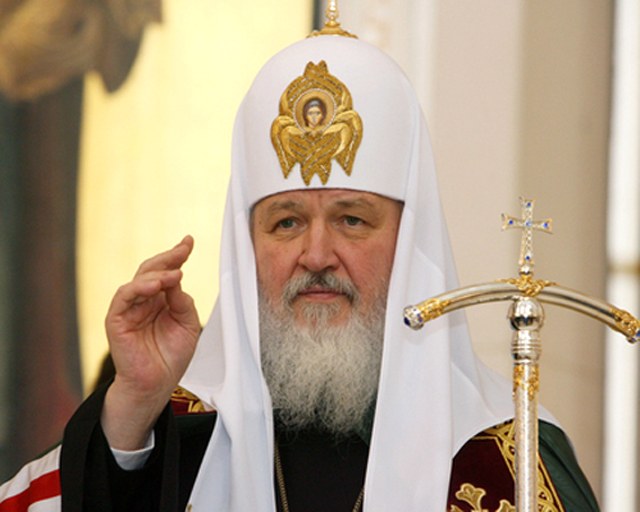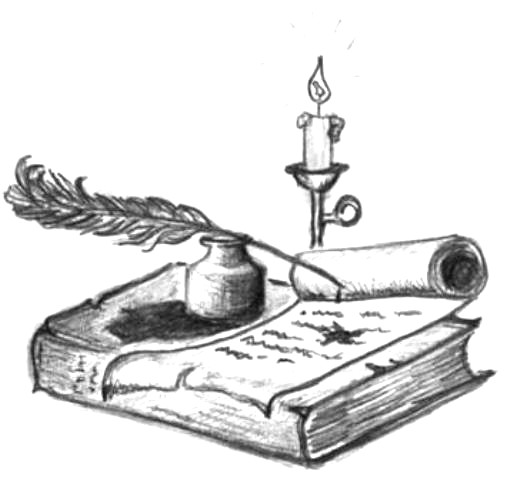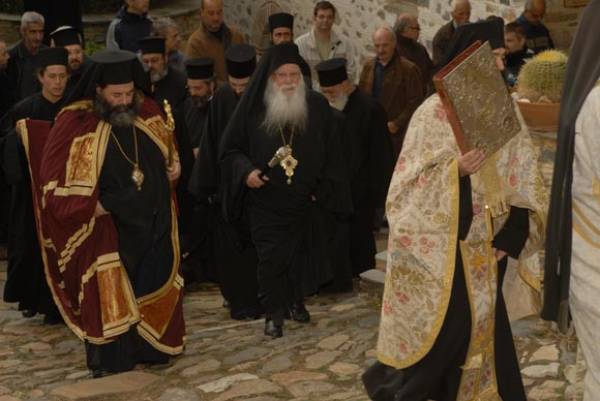Tip 1: Patriarch Kirill: Biography
Tip 1: Patriarch Kirill: Biography
His Holiness Patriarch Kirill of Moscow and All Russia(in the world Vladimir Mikhailovich Gundyaev) was born on November 20, 1946 in Leningrad. He was brought up in a family that was closely associated with Orthodoxy, which, perhaps, determined his future destiny.

Childhood and youth
The father of Vladimir Gundyaev - Mikhail Vasilievich waspriest, mother worked as a teacher of German. The elder brother - Nikolai Gundyaev, professor of the St. Petersburg Theological Academy, rector of the Transfiguration Cathedral, archpriest. The fate of the grandfather of Patriarch Kirill is remarkable. Priest Vasily Stepanovich Gundyaev was repeatedly persecuted by the Soviet authorities for his church activities. Vasily Stepanovich openly opposed the renovation of the church in the 1920s, then in the 1930s and 40s he was imprisoned and exiled. Vladimir Gundyaev graduated from the eighth grade of secondary school and began working as a mapping technician in the Leningrad geological expedition. Three years later he entered the theological seminary, and after graduating to the theological academy of the city of LeningradServing Orthodoxy
In 1969, Vladimir Gundyaev accepted the monastictonsured, and was named Kirill. In 1970, Cyril graduated with honors from the spiritual academy and became a teacher of dogmatic theology. At the same time, he also became the personal secretary of the Metropolitan of Leningrad and Novgorod Nicodemus and the mentor of the first class of theological seminary. In 1971, Cyril was elevated to the rank of archimandrite. In the same year he becomes a representative of the Moscow Patriarchate at the World Council of Churches in Geneva. Cyril begins to move rapidly through the ranks. For twenty years of service, he goes from archimandrite to metropolitan.Social activity
In the 90-ies of the XX century, Cyril became the leadinga popular Sunday program on television - "The Word of the Shepherd." In this program, he answered TV viewers for questions, conducted a popular and understandable spiritual and educational work. Beginning in 1995, Kirill began close cooperation with the Government of the Russian Federation. He was repeatedly invited to various consultative events. Kirill took an active part in resolving disagreements in the Chechen Republic and organized cultural events. With his active participation, the celebration of the 2000th anniversary of Christianity was held.Patriarch Kirill
Patriarch of Moscow and All Russia Alexy II died 5December 2008. The next day, Metropolitan Kirill was appointed Patriarchal Locum Tenens.25 On January 5, 2009, Kirill presided over the Bishops' Council of the ROC, where he was elected one of the three candidates for the throne of the Patriarch of Moscow and All Russia. Kirill became Patriarch of Moscow and All Russia January 27, 2009 of the year. At the Local Council of the ROC, 508 people from 677 voted for him. Patriarch Cyril did a great deal to unite the Russian Orthodox Church abroad. He significantly strengthened the position of Orthodoxy, and expanded the boundaries of cooperation between the states. Around the Patriarch of Cyril, from time to time there are various scandals. The name of the Metropolitan was mentioned in the case on the use of tax benefits for the import of tobacco and alcohol products. Some media argued that Kirill in the 90s was personally interested in some transactions for the import of excisable goods. However, the overwhelming majority of representatives of the ROC came to the defense of Patriarch Kirill. They called all this fuss raised in the media, planned campaign and provocation. In 2003, Patriarch Kirill was accused even in connection with the KGB. As if he is an agent of special services. The corresponding letter was sent to the President of the Russian Federation. Of course, such a provocation did not bring any results.Tip 2: How to analyze the verse
Poem - a lyrical poetic work, asrule, a small amount, sometimes plotless content. The analysis of the poem is included in the compulsory educational program on literature and consists of historical, literary and philosophical analysis.

Instructions
1
Historical analysis. Read at least a short biography of the author of the poem. Write out the main dates that are crucial in his life, the style in which he wrote (classicism, romanticism, realism). Establish what other artists have influenced the development of his tastes. Learn the socio-political structure of the country and the poet's relationship with the authorities.
2
Literary analysis is an analysis of form. The number of lines and stops in the line, the form of rhyming, the metric system, hyperbole, lithotes, analysis of the lexicon and other details. Correlate the application of various techniques (assonations, alliteration) with the meaning of the poem.
3
Philosophical analysis - the most creative partanalysis. It describes the role and place of the poem in the author's work, national and world art, your personal impression of the poem, other generalizing data and conclusions, including the impact on the development of literature in the future. Follow the motives of this author from the pupils and followers of the poet.







